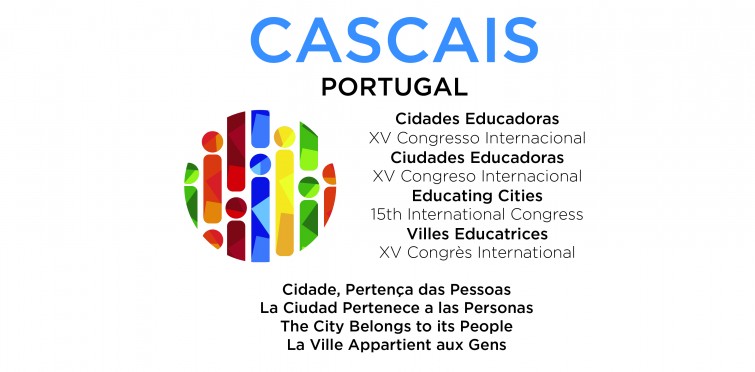1st Axis DESIGN THE CITY INSPIRED BY THE PEOPLE, THEIR NEEDS AND ASPIRATIONS
“The right to the city is a real right to reconfigure the city in a different way, to adapt it more to our collective needs and wishes and thus change our everyday lives, redesign architectural practices (so to speak) to find an alternative way of being able to continue to be simply human” (Harvey, Education and urban life: 20 years of Educating Cities, AICE, 2008)
«Make an educating city» bound by the wish “to raise the quality of life of its citizens, not only in material terms – the environment, the services - but also the construction of civic-mindedness” (Hereu, Education and urban life: 20 years of Educating Cities, AICE, 2008, p. 38).
In this «Making an educating city », with the participation of the inhabitants, is the seed of the best possible thinkable city, in the real right of a city that guarantees:
- A collective policy to transform areas and places in the city, environmental conditions and social practices in a new configuration with responses to changes of life that benefits everyone, safeguarding the most elementary material support, inclusion, access and difference;
- The fundamental right “of making and remaking the city and subsequently ourselves, according to our desires” (Hereu, Education and urban life: 20 years of Educating Cities, AICE, 2008, p. 38);
- The creation of value in the pursuit of transversality, innovation and formal and informal modes of education and obtain, by way of different means, knowledge on the territory as a means of preserving its identity, customs, origins and languages, with the purpose of accomplishing social integration and social cohesion.
COEXISTENCE FOR THE FEELING OF BELONGING
“By improving democratic citizenship, dialogue and participation in plans and projects, there is a contribution to the strengthening of local governments in urban politics; and by culminating, there is a recreation of the concept of citizens as a subject of permanent urban policy, through their participatory attitude, that reinforces their feeling of belonging” (Pozo, Education and urban life: 20 years of Educating Cities, 2008).
The educating city by improving democratic citizenship, dialogue and the participation of citizens recreates “the concept of citizens as the subject of urban politics in permanent renovation through their participatory attitude” (Pozo, Education and urban life: 20 years of Educating Cities, AICE, 2008, p. 30).
Participation is a key element of an educating city given that “democratic urban life is in direct proportion to the real participation of citizens in collective life.” (Pozo, Education and urban life: 20 years of Educating Cities, AICE, 2008, p. 30). It is therefore fundamental that a city is organised in co-management with its citizens, given that here is where spontaneous interactions occur between different social groups.
An educating city shall take into consideration the “constant dialogue between the individual and the community, between rights and duties of all civic actors considering that only interactive and participatory interaction builds a space of citizenship with content for more noble projects” (Pozo, Education and urban life: 20 years of Educating Cities, AICE, 2008, p. 30 ),where one seeks:
- Dialogue and inter-generational collaboration for the integration and mutual use of knowledge and experience existing between all generations;
- The promotion of essential values of democracy: freedom, equality, cultural diversity or international collaboration of solidarity, deepening social cohesion and unequivocally values;
- The need to build and rebuild ties and attachments between people, to promote hospitable and friendly interaction, mutually collaborate in the enriching formation of individual and collective self-esteem.
THE CITY FOR ITS PEOPLE AND THEIR LIFE PROJECTS
“Every person who lives in a city shall really feel subject of the attention of that city and mainly of its democratic representatives, shall feel a subject of the rights of citizenship as a person, with the real possibility to fully at any time develop his or her skills” (Pozo, Education and urban life: 20 years of Educating Cities, AICE, 2008).
An educating city offers and encourages “forms of achieving educating capacity by all the members of the city, whether individually or collectively” (Pozo, Education and urban life: 20 years of Educating Cities, AICE, 2008, p. 30), by seeking to discover all their positive potential on behalf of personal and social progress.
An educating city therefore seeks:
- To promote the best growth possible and to develop the potential and projects of people and human groups.
- An education of quality and life-long learning that renews skills for labour and technical mobility, as well as civic mobility;
- To guarantee that people enjoy, in equal conditions, the opportunities that the city offers within the scope of training, entertainment, work, services and personal growth











